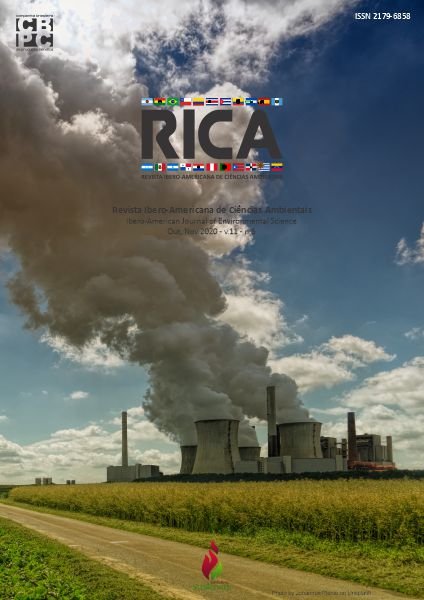Actions to mitigate solid waste on empty land of Campina Grande/PB
DOI:
https://doi.org/10.6008/CBPC2179-6858.2020.006.0056Keywords:
Environment, Urban spaces, Solid waste, Environmental educationAbstract
The deposition of waste in inappropriate areas, such as vacant lots, is an increasingly evident problem. It is believed that this practice may reflect flaws in environmental education. Supported by this problem, the objective of this study was to verify the actions to mitigate the deposition of solid waste in vacant lots in Campina Grande (PB). To this end, the study was designed using the inductive method, with support from exploratory and descriptive research, with a qualitative approach. Data were collected between July and November 2019, through recorded interviews and filling out forms with the coordination of Environmental Surveillance, Epidemiological Surveillance and the secretary of urban services and environment of Campina Grande (PB). From this information, a spatial recognition of the city was carried out, through the Google Earth® program, where the locality of the neighborhoods and vacant lots was defined, previously observed, and subsequently visited and photographed. The data were described and discussed in the light of the literature and, subsequently, interpreted according to the content analysis proposed by Bardin. This study was registered at Platform Brazil, submitted to the Research Ethics Committee and approved. Environmental surveillance provided the entire mapping of Campina Grande with the location of 2,453 wasteland scattered in the municipality and presented its main actions to combat this problem. The Epidemiological Surveillance reported that the record of compulsory notification of diseases related to the accumulation of solid waste has increased between the years 2014 and 2018. Dengue, for example, grew 456.9% in 2018 compared to 2017. The data collected at Secretary of Urban Services and Environment generated three categories: solid waste in vacant lots; environmental education and penalties and environmental sustainability indicators. In order to mitigate the inadequate deposition of solid waste in vacant lots, the Environmental Surveillance suggests notifications and fines, as well as enforcing the municipality's Posture Code. Epidemiological Surveillance recommends to do more impetuous campaigns that encourage environmental education practices. The Secretary of Urban Services and Environment proposes to carry out closer and more effective actions in the areas of education, health and the environment.
Downloads
Downloads
Published
Issue
Section
License
Copyright (c) 2020 Ibero-American Journal of Environmental Sciences

This work is licensed under a Creative Commons Attribution-NonCommercial-NoDerivatives 4.0 International License.
The CBPC - Companhia Brasileira de Produção Científica (Brazil CNPJ: 11.221.422/0001-03) the material rights of the published works. The rights relate to the publication of the work anywhere in the world, including rights to renewals, expansions and dissemination of the contribution, as well as other subsidiary rights. All electronically published works may subsequently be published in printed collections under the coordination of this company and / or its partners. The authors preserve the copyright, but are not allowed to publish the contribution in another medium, printed or digital, in Portuguese or in translation.









